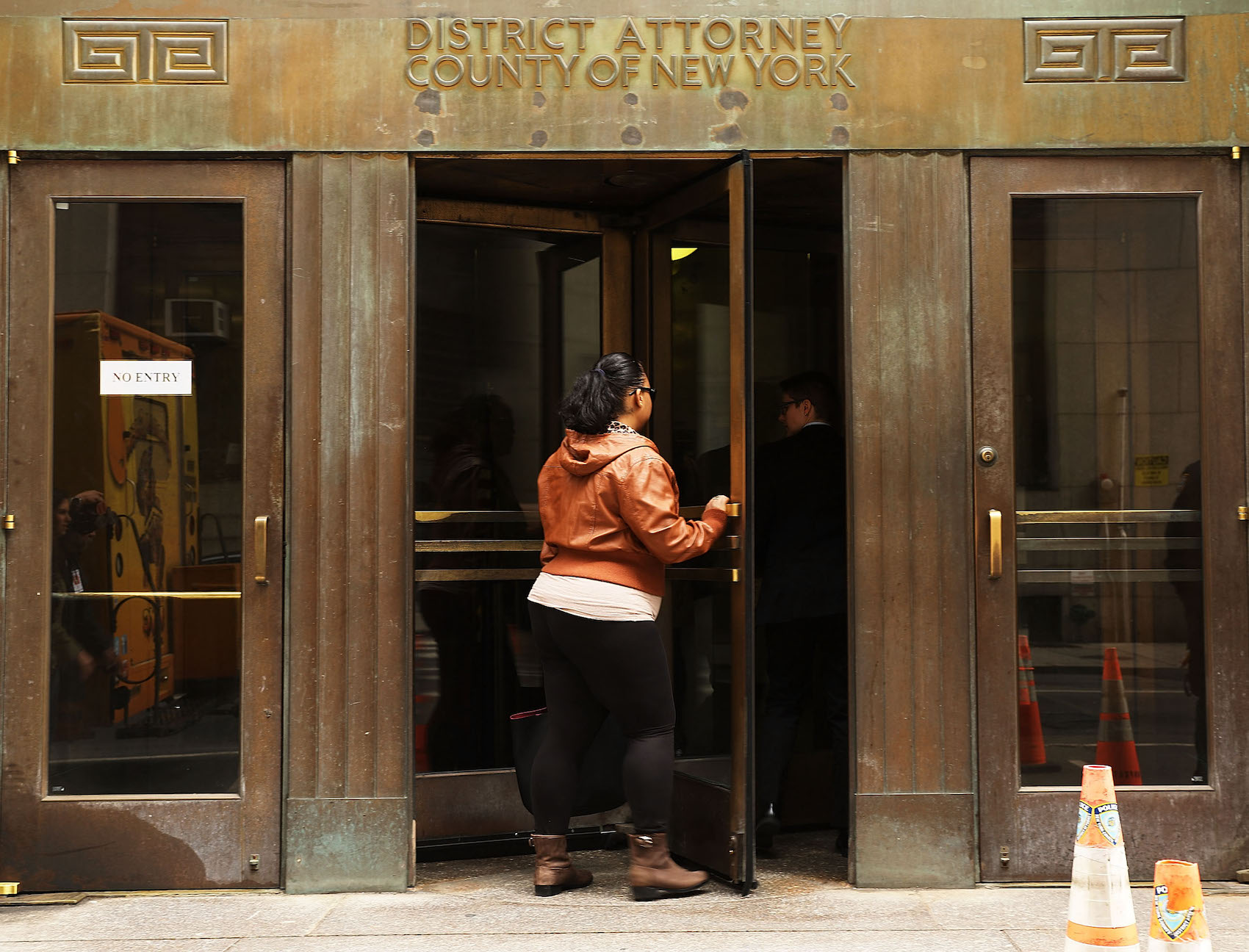Manhattan’s Next District Attorney Must Reject Extreme Sentencing
Manhattan’s next district attorney should consider less punitive alternatives instead.

The Point
Nearly a fifth of New York’s prison population is serving a life sentence—one of the highest rates in the country. Manhattan’s next district attorney can and should change that by rejecting extreme sentencing.
The next Manhattan District Attorney must end practices that lead to extreme sentences:
- The next Manhattan District Attorney must not seek extreme sentences. Tahanie Aboushi and Eliza Orlins have pledged to never seek a sentence longer than 20 years and Alvin Bragg and Dan Quart would establish a presumption against seeking sentences longer than 20 years. Three candidates—Diana Florence, Lucy Lang, and Tali Farhadian Weinstein—have made no commitment to not seek lengthy or extreme sentences (Liz Crotty did not respond to requests for comment on sentencing from The Appeal: Political Report and New York Focus).
- The next Manhattan District Attorney should use their charging discretion to avoid extreme “felony enhancement” sentences. In New York, a person can be punished more harshly for a subsequent offense—but they don’t have to be. Six candidates (Aboushi, Bragg, Florence, Lang, Orlins, and Quart) told The Appeal: Political Report that they would “make efforts to avoid felony enhancements by charging misdemeanors instead.” Farhadian Weinstein “expressed skepticism” toward this practice.
- The next Manhattan District Attorney must not oppose applications for parole. Releasing people from prison helps to reduce mass incarceration, remedies harsh sentencing practices of the past, and recognizes that people grow and change. The current district attorney Cy Vance “routinely” opposes applications for parole, but at least half of the candidates say they would never (Aboushi, Orlins, and Quart) or would rarely (Florence) oppose applications for parole. The remaining candidates declined to comment on whether they would oppose parole applications. Four candidates (Aboushi, Bragg, Lang, and Orlins) also stated their “default position” would be to support parole applications.
Prosecutors play a critical role in scaling back mass incarceration:
- “We have a lot to do with how long people are locked up,” explained Baltimore State’s Attorney Marilyn Mosby and Los Angeles District Attorney George Gascon in The Appeal. Prosecutorial decisions on what charges to file, what sentences to seek, and what releases to recommend all contribute to the sentences people ultimately receive and serve.
- In 2019, New York’s state prison population was 400% higher than it was in 1973. One reason for that increase is the proliferation of extreme sentences. According to the Correctional Association of New York, the length of sentences in New York has grown significantly, with the average length of time until possible release increasing by nearly 400% between 2007 and 2017.
- Katie Schaffer, director of organizing and advocacy at the Center for Community Alternatives, emphasized the potential impact of the district attorney election to The Appeal: Political Report and New York Focus: “For years, the Manhattan DA has been up-charging, pushing for long and life sentences, and opposing mitigation and alternatives on the front end and parole on the back end. A new DA committed to shrinking the size, scope, and harm of the office could limit the number of New Yorkers whose lives and families are torn apart by carceral responses.”
Dive Deeper
- The Appeal Coverage of Prosecutors and Extreme Sentences
-
- Survey: A Majority of Voters Support Review of Extreme Sentences. A new report looks at popular support for two policies—second-look legislation expanding release eligibility and sentencing review units in prosecutors’ offices— that would reduce the number of people in U.S. prisons.
- Resentencing Units Can Rectify, Rehabilitate, and Restore. A concerted effort to review, resentence, and release is the right thing to do for those who have been unjustly sentenced. It is also the right thing to do for our community.
- The Appeal: Political Report Interviews with the Candidates
-
- Some Manhattan D.A. Candidates Draw a Line Against Life in Prison Sentences. Thousands of New Yorkers are in prison for life. Now candidates who are running in Manhattan’s June primary say they will help more people receive parole and stop seeking decades-long sentences.
- “Life Sentences Are Death Sentences.” How This D.A. Candidate Wants to Decarcerate Manhattan. Dan Quart makes the case for addressing the “systemic breakdown” in New York’s prisons and jails with shorter sentences, ending cash bail, and other reforms.
- This Public Defender Has Fought the Manhattan D.A.’s Office. Now She Wants to Lead It. Eliza Orlins, who is running in the June 22 primary, lays out how she would overhaul the “prosecutorial-industrial complex.”
- Manhattan D.A. Candidate Explains Why She’ll Stop Prosecuting Drug Offenses and Sex Work. Tahanie Aboushi discusses her newly expanded proposal to not prosecute offenses that criminalize poverty, mental health issues, and substance use, and to reduce incarceration for all cases.
- The Appeal Live Interviews with the Candidates
-
- A Conversation with Tahanie Aboushi, Candidate for Manhattan District Attorney.
- A Conversation with Alvin Bragg, Candidate for Manhattan District Attorney.
- A Conversation with Tali Farhadian Weinstein, Candidate for Manhattan District Attorney.
- A Conversation with Lucy Lang, Candidate for Manhattan District Attorney.
- A Conversation with Eliza Orlins, Candidate for Manhattan District Attorney.
- A Conversation with Dan Quart, Candidate for Manhattan District Attorney.

